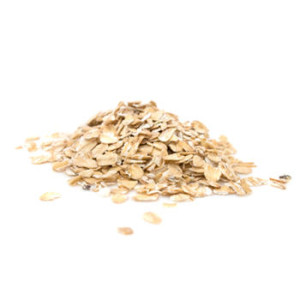Contents
Uses
- Oat bran and whole oats are used for high blood pressure; high cholesterol; diabetes; and digestion problems including irritable bowel syndrome (IBS), diverticulosis, inflammatory bowel disease (IBD), diarrhea, and constipation. They are also used for preventing heart disease, gallstones, colon cancer, and stomach cancer.
- People use oats for joint pain (rheumatism), fatigue, a fatigue-related condition called neurasthenia syndrome, withdrawal from nicotine and narcotics, and lowering high uric acid levels that can cause gout. Oats are also used for anxiety, excitation and stress; as well as for weak bladder and kidney ailments. Other uses include connective tissue disorders, skin diseases, fat redistribution syndrome associated with HIV treatment, and as a tonic.
- Oat straw is used for the flu, swine (H1N1) flu, coughs, bladder disorders, joint pain, eye ailments, frostbite, gout, and a skin infection called impetigo.
- Topically, oats are used for skin conditions including itchiness, dryness, oiliness, weeping eczema, and contact dermatitis. Oats are also applied to the skin for chicken pox, osteoarthritis, liver disorders, and added to foot baths for chronically cold or tired feet.
- In foods, oats are used as a grain or cereal.
- In manufacturing, oats are included in some bath products and soaps.
Benefits
-
Sex Booster: Wild oats may be a mild sexual enhancer, according to Dr. Ray Sahelian, author of “Natural Sex Boosters.” However, he notes that most claims for sexual enhancement rely on research done in the 1980s by the Institute for Advanced Study of Human Sexuality in San Francisco, a company that marketed avena sativa products. In the animal kingdom, Balch notes that stallions that are fed wild oats are said to become lustful.
- Inflammation Fighter: Wild oats can help you fight inflammation, advises the online-newspaper, The Oregonian. Molecules in oats called avenanthramides help reduce levels of inflammatory cytokines, which are immune system chemicals. Lowering cytokines is a good idea because when levels are high they raise risk for chronic conditions such as diabetes and heart disease, advise The YOU Docs columnists Mehmet Oz and Mike Roizen in The Oregonian.
-
Heart Health Booster: Wild oats can boost heart health. Avena sativa helps you lower the “bad” low density lipoprotein, or LDL, cholesterol levels as well as overall cholesterol levels, according to a Canadian study published in the “European Journal of Clinical Nutrition.” This is due to the main component of the oats’ soluble fiber, called beta-glucan, according to lead study author J.T. Braaten of the University of Ottawa. Wild oats may help reduce your waistline at the same time, which further reduces risk for coronary heart disease, advises Venezuelan researcher N. Reyna-Villasmil, who authored a 2007 study published in the “American Journal of Therapeutics.” Avena sativa helps you to lower risk for heart-threatening blood clots and keeps your arteries flexible as well, according to Oz and Roizen.
-
ADD Helper: If you or a loved one suffers attention deficit disorder or attention deficit hyperactivity disorder, you may benefit from avena’s sedative properties, according to Balch. Herbalists use avena to reduce symptoms of methylphenidate withdrawal and to alleviate mild depression for adults with such conditions. However, science is lacking for this use, making it controversial. Before you try any sort of alternative therapy, especially one that is controversial, you need to consult with your doctor, advises the National Resource Center on AD/HD.
-
Other Uses: You may see Avena sativa advertised as an aid to help combat osteoporosis because it can boost hormone levels that stimulate cell growth. However, evidence for this use so far is lacking, according to the University of Maryland Medical Center.
-
Avena sativa also may help you if you have a condition called amenorrhea, which is when you’ve stopped having a period unrelated to menopause. That’s because it is rich in minerals that potentially promote better thyroid function, according to UMMC. However, evidence for this use is based on traditional use rather than scientific study, so you need to consult with a doctor if you’d like to incorporate oat straw use into your regimen for treating this condition.
Cautions
- Special Precautions & Warnings:
- Difficulty swallowing food or chewing problems: If you have swallowing problems (from a stroke, for example) or if you have trouble chewing because of missing teeth or poorly fitting dentures, it’s best to avoid eating oats. Poorly chewed oats can cause blockage of the intestine.
- Disorders of the digestive tract including the esophagus, stomach, and intestines: Avoid eating oat products. Digestive problems that could extend the length of time it takes for your food to be digested could allow oats to block your intestine.
Interactions
Unknown, please consult with your doctor.
Other names
Avena, Avena Fructus, Avena byzantina, Avena orientalis, Avena volgensis, Avenae Herba, Avenae Stramentum, Avoine, Avoine Entière, Avoine Sauvage, Cereal Fiber, Dietary Fiber, Farine d’Avoine, Fibre Alimentaire, Fibre Céréalière, Fibre d’Avoine, Folle Avoine, Grain d’Avoine, Green Oat, Green Oat Grass, Groats, Gruau, Oat, Oat Bran, Oat Fiber, Oat Flour, Oat Fruit, Oat Grain, Oat Grass, Oat Herb, Oat Straw, Oat Tops, Oatstraw, Oatmeal, Oats, Paille, Paille d’Avoine, Porridge, Rolled Oats, Son d’Avoine, Straw, Whole Oat, Whole Oats, Wild Oat, Wild Oat Herb, Wild Oats Milky Seed
References
Source: WebMD, http://www.webmd.com/vitamins-supplements/ingredientmono-814-oats.aspx?activeingredientid=814&activeingredientname=oats
Live Strong, http://www.livestrong.com/article/126352-benefits-avena-sativa/

